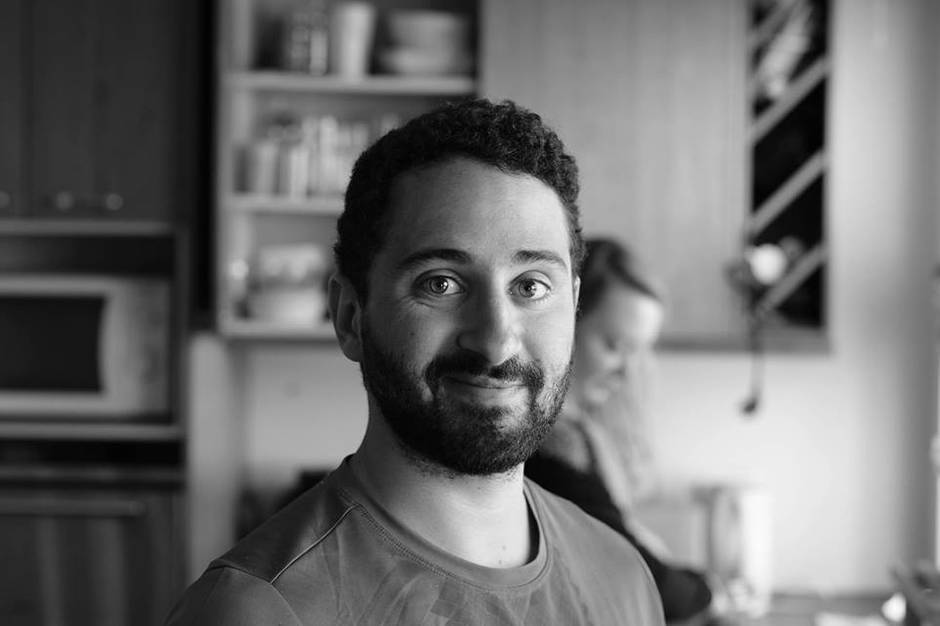Emmanuel Cabral, DR
Second year ISE student conducting thesis research in France
Name: Emmanuel Cabral
Age: 25
Hometown: Santo Domingo, Dominican Republic
Academic Background: B.Sc. in Architecture, Universidad Iberoamericana, DR
Major & Class: Sustainable Energy Engineering, Class of 2018
Location of thesis research: Strasbourg, France
How did you discover your thesis opportunity?
From the beginning, I knew about RU's exchange programs with other universities and was hoping to develop a project that multiple universities and countries can benefit from. I have been in contact with ISE since the start of my masters regarding the potential of doing an exchange program abroad (either taking courses or an internship). As a result, I was one day informed of an internship project with L'Eurométropole and L'Institut National des Sciences Appliquées de Strasbourg (INSA -Strasbourg) and applied for the project.
What motivated you to travel and study in Strasbourg, France?
I've been mostly interested in going to France because it's a different environment than Iceland and it also gives me the opportunity of improving French as my third language. As well, here in Reykjavik, there is low potential for developing solar PV projects, whereas in France there is a considerable amount of solar irradiation. In addition, geothermal is not common in many parts of France, though there is now considerable effort towards optimizing Engineered Geothermal Systems (EGS); this makes it an interesting place to be nowadays.
What thesis research are you conducting?
The project will start as a 6-month internship in which two different energy resources will be explored and analyzed - Deep Geothermal Energy resources or EGS, and Solar-PV. At the end of the internship, I will focus on my thesis with the geothermal side of the internship. I will explore the feasibility and model a system of geothermal resources and analyze the different thermodynamic cycles to estimate the optimal usage of the resource.
What do you hope to accomplish?
To successfully deliver and meet the goals of the internship by producing high grade research studies. There is always that “extra” that I am hoping to achieve and contribute with. I am also hoping that my thesis can serve as part of the future plans for the energy resource assessment in Strasbourg, and to help meet some of the goals set on the Sustainable Energy Action Plan.
What are you most excited for during your time there?
I'm very excited to explore the beautiful city of Strasbourg and that I get to practice another language. As well, during my internship I will be using different tools, including GIS for solar, and will be working directly with engineering companies for the geothermal portion. I will also benefit a lot from working in different environments, and working with professionals from the French industry. This makes it very interesting and exciting.
But above all, I am mostly excited for finding out what results I will produce. All geothermal projects are different and here in Iceland there is a lot of potential, whereas in France there is only potential in some areas. I'm excited to see what results I can produce and how my thesis is going to look at the at the end.
What do you expect will be your biggest challenges?
I think the biggest challenge will be producing that “extra” that I am aiming for. The goals are very clear and for both projects (solar and geothermal) there is considerable amount of aspects to include in a study/research. My biggest challenge is not only to meet their demands but also contribute with something of my own.
How will your research abroad compliment the rest of your studies with ISE?
Renewable energy resources are not the same anywhere in the world. You might have a lot of water and geothermal energy in one country, and very low solar irradiation, like here in Iceland. Similarly, you might find high solar irradiation in one country, and scarce sources of ground heat. I think this opportunity will help me understand and learn more about technologies and resources that are not directly available here in Iceland. This is a great chance to put in practice everything I've learned at ISE in another country.

